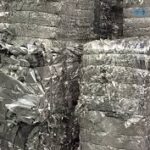The use of natural resources has become a significant concern for the world’s population today. The unsustainable use of natural resources risks making them scarce and increasing the chances of environmental disasters. Fortunately, we can recycle metals, such as aluminium scrap and copper, to reduce waste and energy use, while still meeting our needs. In this blog post, we will discuss the importance of aluminium scrap and copper recycling.
Conserves Energy

Recycling aluminium scrap and copper reduces energy consumption during the production process. Manufacturing new aluminium and copper items requires up to 95% more energy than recycling. Recycling aluminium scrap in Melbourne, for instance, saves 92% of energy compared to producing aluminium from bauxite. Similarly, recycling copper saves up to 85% of energy compared to manufacturing new copper.
Reduces Greenhouse Gas Emissions
Recycling aluminium scrap and copper decreases greenhouse gas emissions. Emissions in the mining and metal manufacturing industries are a significant contributor to global warming. Recycling scrap metals significantly reduces pollution and energy consumption. Recycling 1 metric tonne of aluminium produces only one-quarter of the CO2 emitted from producing new aluminium. Similarly, recycling copper produces 85% fewer emissions than new copper.
Saves Natural Resources
Recycling aluminium scrap and copper also preserve natural resources. The mining of aluminium and copper on a large scale depletes natural reserves. Recycling these metals, therefore, slows down the rate at which these natural resources get consumed. Furthermore, recycling one metric tonne of aluminium saves four metric tonnes of bauxite, while recycling copper saves up to 3.5 metric tonnes of copper ore.
Provides Economic Benefits
Aluminium scrap and copper recycling in Melbourne are essential contributors to the economy. Recycling generates jobs across the value chain, from collection, sorting and processing of the scrap to the manufacturing of new products. Furthermore, recycling scrap metals offers significant economic advantages by lowering energy and raw material costs. This is because recycled metals are typically cheaper than virgin metals.
Reduces Landfill Waste
Lastly, recycling aluminium scrap and copper reduces landfill waste. Landfills are a significant source of pollution and environmental damage. Recycling metal items reduces the amount of waste sent to the landfill, thus reducing water and air pollution.
Conclusion:
Recycling aluminium scrap and copper is vital for the environment and the economy. It decreases greenhouse gas emissions, preserves natural resources, saves energy, provides economic benefits, and reduces landfill waste. Governments and industry players must develop and enforce policies that promote the recycling of these metals. Consumers must also play their part by recycling their waste and supporting the production of recycled metal items. By reducing our reliance on virgin resources, we can create a positive impact on the environment and help to bring about a more sustainable future.





